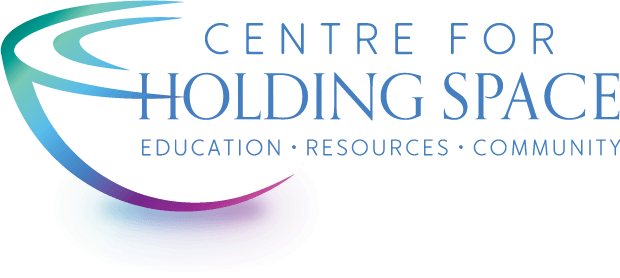Listen to Krista read the post…
You may have known this about us already, but Heather and I experience “the big ick” whenever we have to start marketing ourselves or our programs. Every year around this time, after a busy summer where we’ve done everything but a lot of work-related stuff, we realize that if we are going to continue to be in business, we really, really need to start marketing our programs.
And, simultaneously, we both immediately go, “Bleh. Ick!”
It’s not because we don’t believe in ourselves or in our programs. Honestly, it would have been really ridiculous of us to start the Centre if that were the case.
What we dislike so much is feeling like we have to put on our stage clothes and perform to get people’s attention in order to convince them that we and our programs are worth their time and money.
I suspect I’m preaching to the choir here, but gosh, it would be so great if people just somehow magically knew about us and immediately valued our work! I imagine many of you feel the same way about some of your own passions and efforts.
However, that is not currently how anything works, so allow me to don my “marketing hat”, such as it is, and introduce you to my newest series: “You Need to Learn About Holding Space Because”.
(I will likely send these emails weekly between now and the end of October. If that annoys you, feel welcome to unsubscribe – I’d rather be a delight in your inbox than a burden and neither Heather nor I will take it personally if you need to manage your email energy!)
Today’s instalment: You Need to Learn About Holding Space Because: You’re Experiencing Empathetic Overwhelm.
What is empathetic overwhelm, you may ask? It’s what happens when you feel like everyone around you is in a state of intense emotions of some kind. Changes are happening fast and furious to the folks in your life, and even if you’re not necessarily directly affected by those changes yourself, you are empathizing with those who are being affected.
Empathetic overwhelm, in my head, anyway, is like one step below compassion fatigue or empathetic stress. The changes happening to folks around you aren’t traumatic in nature (some of them are really good), they’re just… changes and come with all the feelings (both the energizing feelings and those that are less so) that inevitably arise.
Now, before you assume I have this all figured out, you need to know that I am writing this for my own benefit probably more than yours. This fall has me in a gigantic state of empathetic overwhelm. Between all the massive changes Heather has been experiencing, my oldest starting high school, and the start of a new season both with the Centre and the church community that I run (where I will be beginning the process winding down my role there and helping them transition into something new), I have been up in my feels more than once this last week. Most of the changes are happening around me, rather than to me, and most of them are positive, good, and exciting. But nothing is ever just one thing, of course. There is also some fear, anxiety, grief, and uncertainty mixed in there too.
I tend to a lot of threads between the Centre, my church, my family, and my friends, and when I’m in a state of empathetic overwhelm like this, those threads start to feel slippery. Or maybe it’s more like feeling as though my grip strength has weakened, which leaves me feeling slightly out of control. Perhaps you feel the same way sometimes.
I don’t know about you, but that feeling of losing grip strength, for a helper-slash-like-to-feel-in-control person like me, is disconcerting and frustrating.
Our Holding Space Foundation Program often attracts people like me – helpers. We want to help people get through tough times in their lives. We want to be there for folks in a meaningful way. We want to be good friends, coworkers, bosses, caregivers, parents, students, teachers, siblings, children, lovers, and allies. We’re aware we won’t likely change the world, but we want to do our part to be a positive influence in our immediate spheres.
Unfortunately, when people like us (me) are in empathetic overwhelm, we often slip into helper modes that are not actually helpful to the people around us. Frankly, when we’re in any state of overwhelm, our brains tend to reorient to protect ourselves from real and imagined damage (ego damage included).
For me, this usually looks like two things: performative helping and self pity.
Performative helping is when you are doing things not for the sake of the person or situation you’re trying to help, but for the sake of making yourself either look good, feel better, or even to avoid discomfort.
This can look like joining a pile-on on-line against someone (whether you know them personally or not) over an offensive remark they made. Your chiding remarks, outside the bounds of constructive, mutually caring relationship, do little more than try to make others notice you and give you a pat on the back or affirm that you are on the ‘right’ side of an issue. The person who made the mistake, however, may not feel so warm and fluffy towards you and may even block you from their social media.
Performative helping can also look like swooping in to help someone even if they never asked for it. Take, for example, this person who tried to help this disabled blogger through a door only to cause her to spill to the floor instead. You may think you’re doing it “out of the goodness of your heart”, or to make the other person’s life easier, but in reality, you may simply be trying to ease your own discomfort or make yourself feel like a good person.
Oddly, when I engage in performative helping, I almost always start to experience self pity. Why? Because the internal motivation for this kind of helping is usually transactional. I do this for you and you are supposed to thank me. Or at least notice. Or affirm that I am a good person somehow. The instant dopamine hit of this kind of helping is usually fleeting and requires us to perform again and again just to access it regularly.
When the affirmation, thanks, and dopamine don’t come, we can start to feel resentful and full of self pity. “I work so hard to be there for other people and to help them out, even when they don’t know they need helping. Why don’t people appreciate me more? It must be because no one really cares about me.”
Can you see what a closed loop this becomes?
In our Holding Space Foundation Program, we do not teach you how to be a performative helper. We teach you how to be in mutually caring relationships with others where you release the outcome of the care you are providing.
We teach you how to sit with discomfort and manage your own emotional responses so that you can be a calm, positive presence in people’s lives, while being sure that your own needs are tended to as well.
We teach you how we have all been deeply indoctrinated into transactional, capitalist, hyper-individualistic systems and how we need to deconstruct those ideas so that we can truly engage in compassionate relationships and communities.
We teach you how to sit with complexity and how to shed binary thinking so that your ability to help others becomes more consensual, nuanced, and open handed.
Holding Space continues to be my antidote to Empathetic Overwhelm. It helps me recognize when I am in danger of engaging in performative helping and self pity and gives me the tools to manage my overwhelm (both through self- and community- care) so that I can show up for my kids, my spouse, my business partner, my team, my friends, and my church community with good boundaries, compassion, and mutual care.
Will you consider joining us on this year’s learning journey? Registration is open and waiting for you. This year’s cohort already consists of folks from eight different countries all over the world which means you get to sit with folks from a variety of backgrounds, perspectives, and worldviews. We are continually amazed at the variety, calibre, and quality of people this program attracts and would love to have you join us.

